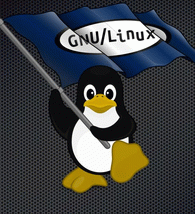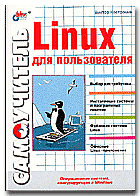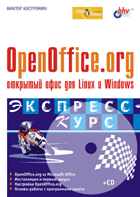Библиотека сайта rus-linux.net
Software portability is usually thought of in quasi-spatial terms: can this code be moved sideways to existing hardware and software platforms other than the one it was built for? But Unix experience over decades tells us that durability down through time is just as important, if not more so. If we could predict the future of software in detail it would probably be the present — nevertheless, in programming for portability we should try to think about making choices that will base the software on the features of its environment that are likeliest to persist, and avoid technologies that seem likely to face end-of-life in the foreseeable future.
Under Unix, two decades of attention to the issues of specifying portable APIs has largely solved that problem. Facilities described in the Single Unix Specification are likely to be present on all modern Unix platforms today and rather unlikely to go unsupported in the future.
But not all platform dependencies have to do with the system or library APIs. Your implementation language can matter; file-system layout and configuration differences between the source and target system can be a problem as well. But Unix practice has evolved ways to cope.
The first issue in programming for portability is your choice of implementation language. All the major languages we surveyed in Chapter═14 are highly portable in the sense that compatible implementations are available across all modern Unixes; for most, implementations under Windows and MacOS are available as well. Portability problems tend to arise not in the core languages but in support libraries and degree of integration with the local environment (especially IPC and concurrent-process management, including the infrastructure for GUIs).
The core C language is extremely portable. The standard Unix implementation is the GNU C compiler, which is ubiquitous not only in open-source Unixes but modern proprietary Unixes as well. GNU C has been ported to Windows and classic MacOS, but is not widely used in either environment because it lacks portable bindings to the native GUI.
The standard I/O library, mathematics routines, and internationalization support are portable across all C implementations. File I/O, signals, and process control are portable across Unixes provided one takes care to use only the modern APIs described in the Single Unix Specification; older C code often has thickets of preprocessor conditionals for portability, but those handle legacy pre-POSIX interfaces from older proprietary Unixes that are obsolete or close to it in 2003.
Volumes have been written on the subject of how to write portable C code. This book is not going to be one of them. Instead, we recommend a careful reading of Recommended C Style and Coding Standards [Cannon] and the chapter on portability in The Practice of Programming [Kernighan-Pike99].
C++ has all the same operating-system-level portability issues as C, and some of its own. An additional one is that the open-source GNU compiler for C++ has lagged substantially behind the proprietary implementations for most of its existence; thus, there is not yet as of mid-2003 a universally deployed equivalent of GNU C on which to base a de-facto standard. Furthermore, no C++ compiler yet implements the full C++99 ISO standard for the language, though GNU C++ comes closest.
Shell-script portability is, unfortunately, poor. The problem is not shell itself; bash(1) (the open-source Bourne Again shell) has become sufficiently ubiquitous that pure shellscripts can run almost anywhere. The problem is that most shellscripts make heavy use of other commands and filters that are much less portable, and by no means guaranteed to be in the toolkit in any given target machine.
Perl has good portability. Stock Perl even offers a portable set of bindings to the Tk toolkit that supports portable GUIs across Unix, MacOS and Windows. One issue dogs it, however. Perl scripts often require add-on libraries from CPAN (the Comprehensive Perl Archive Network) which are not guaranteed to be present with every Perl implementation.
Python has excellent portability. Like Perl, stock Python even offers a portable set of bindings to the Tk toolkit that supports portable GUIs across Unix, MacOS, and Windows.
Tcl portability is good, overall, but varies sharply by project complexity. The Tk toolkit for cross-platform GUI programming is native to Tcl. As with Python, evolution of the core language has been relatively smooth, with few version-skew problems. Unfortunately, Tcl relies even more heavily than Perl on extension facilities that are not guaranteed to ship with every implementation — and there is no equivalent of CPAN to centrally distribute them.
For smaller projects not reliant on extensions, therefore, Tcl portability is excellent. But larger projects tend to depend heavily on both extensions and (as with shell programming) calling external commands that may or may not be present on the target machine; their portability tends to be poor.
Tcl may have suffered, ironically, from the ease of adding extensions to it. By the time a particular extension started to look interesting as part of the standard distribution, there typically were several different versions of it in existence. At the 1995 Tcl/Tk Workshop, John Osterhout explained why there was no OO support in the standard Tcl distribution:
Think of five mullahs sitting around in a circle, all saying “Kill him, he's a heathen”. If I put a specific OO scheme into the core, then one of them will say “Bless you, my son, you may kiss my ring”, and the other four will say “Kill him, he's a heathen”.
The lot of a language designer is not necessarily a happy one.
Java portability is excellent — it was, after all, designed with “write once, run everywhere” as a primary goal. Portability fails, however, to be perfect. The difficulties are mostly version-skew problems between JDK 1.1 and the older AWT GUI toolkit (on the one hand) and JDK 1.2 with the newer Swing GUI toolkit. There are several important reasons for these:
For programs that involve GUIs, Java developers seeking portability will, for the foreseeable future, face a choice: Stay in JDK 1.1/AWT with a poorly designed toolkit for maximum portability (including to Microsoft Windows), or get the better toolkit and capabilities of JDK 1.2 at the cost of sacrificing some portability.
Finally, as we noted previously, the Java thread support has portability problems. The Java API, unlike less ambitious operating-system bindings for other languages, bravely tried to bridge the gaps between the diverging process models offered by different operating systems. It does not quite manage the trick.
Then, too, the primitive set of Emacs is quite stable. It achieved completeness for the things an editor has to do (manipulating buffers, bashing text) years ago. Only the introduction of X has disturbed this picture at all, and very few Emacs modes need to be aware of X. Portability problems are usually manifestations of quirks in the C-level bindings of operating-system facilities; control of subordinate processes in modes like mail agents is about the only issue where such problems manifest with any frequency.
Once your language and support libraries are chosen, the next
portability issue is usually the location of key system files and
directories: mail spools, logfile directories and the like.
The archetype of this sort of problem is whether the mail spool
directory is /var/spool/mail or
/var/mail.
Often, you can avoid this sort of dependency by stepping back and reframing the problem. Why are you opening a file in the mail spool directory, anyway? If you're writing to it, wouldn't it be better to simply invoke the local mail transport agent to do it for you so the file-locking gets done right? If you're reading from it, might it be better to query it through a POP3 or IMAP server?
The same sort of question applies elsewhere. If you find yourself opening logfiles manually, shouldn't you be using syslog(3) instead? Function-call interfaces through the C library are better standardized than system file locations. Use that fact!
If you must have system file locations in your code, your best
alternative depends on whether you will be distributing in source code
or binary form. If you are distributing in source, the
autoconf tools we discuss in the next
section will help you. If you're distributing in binary, then it's
good practice to have your program poke around at runtime and see if
it can automatically adapt itself to local conditions — say, by
actually checking for the existence of /var/mail and /var/spool/mail.
You can often use the open-source GNU autoconf(1) we surveyed in Chapter═15 to handle portability issues, do system-configuration probes, and tailor your makefiles. People building from sources today expect to be able to type configure; make; make install and get a clean build. There is a good tutorial on these tools. Even if you're distributing in binary, the autoconf(1) tools can help automate away the problem of conditionalizing your code for different platforms.
Other tools that address this problem; two of the better known are the Imake(1) tool associated with the X windowing system and the Configure tool built by Larry Wall (later the inventor of Perl) and adapted for many different projects. All are at least as complicated as the autoconf suite, and no longer as often used. They don't cover as wide a range of target systems.






